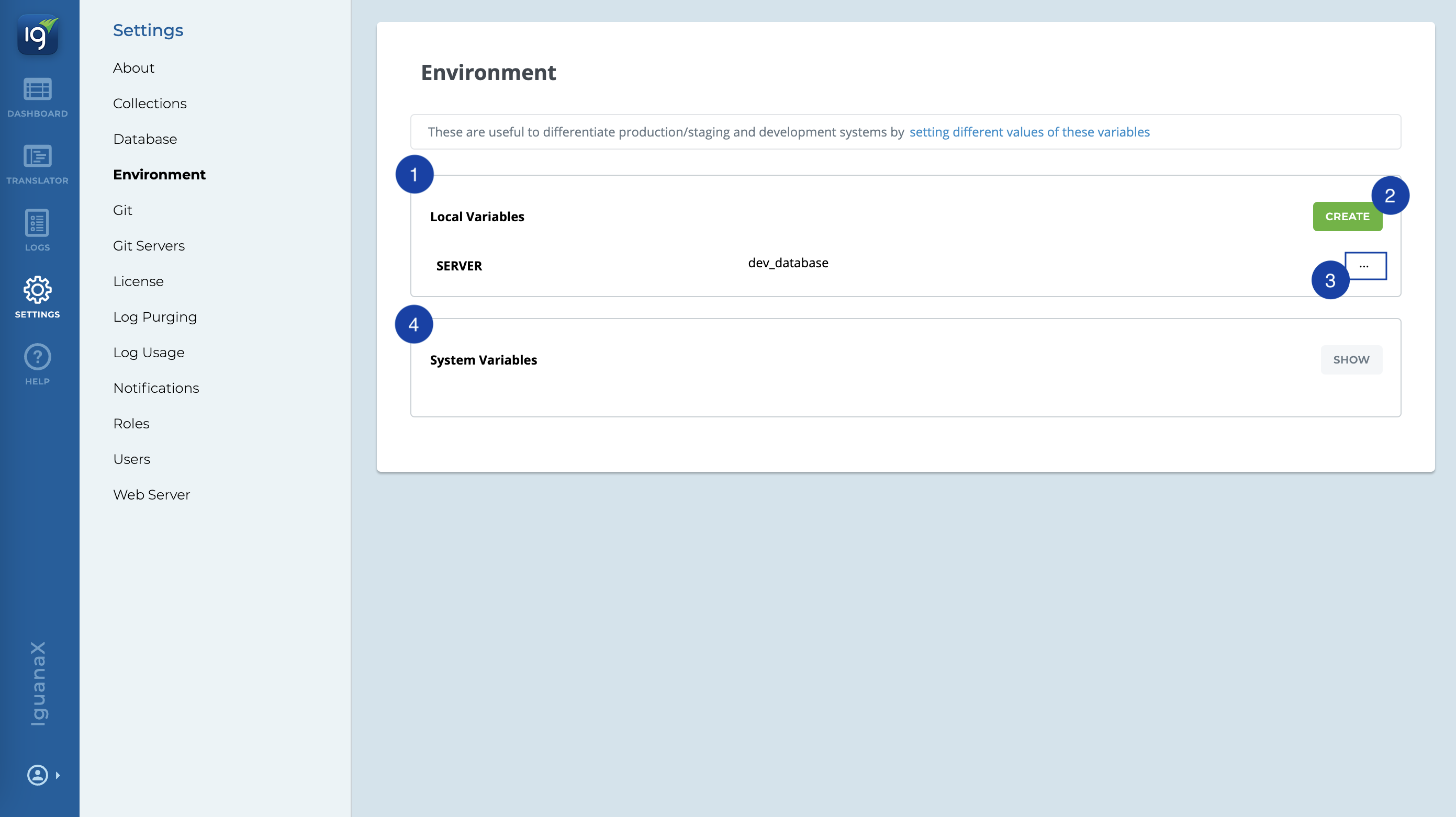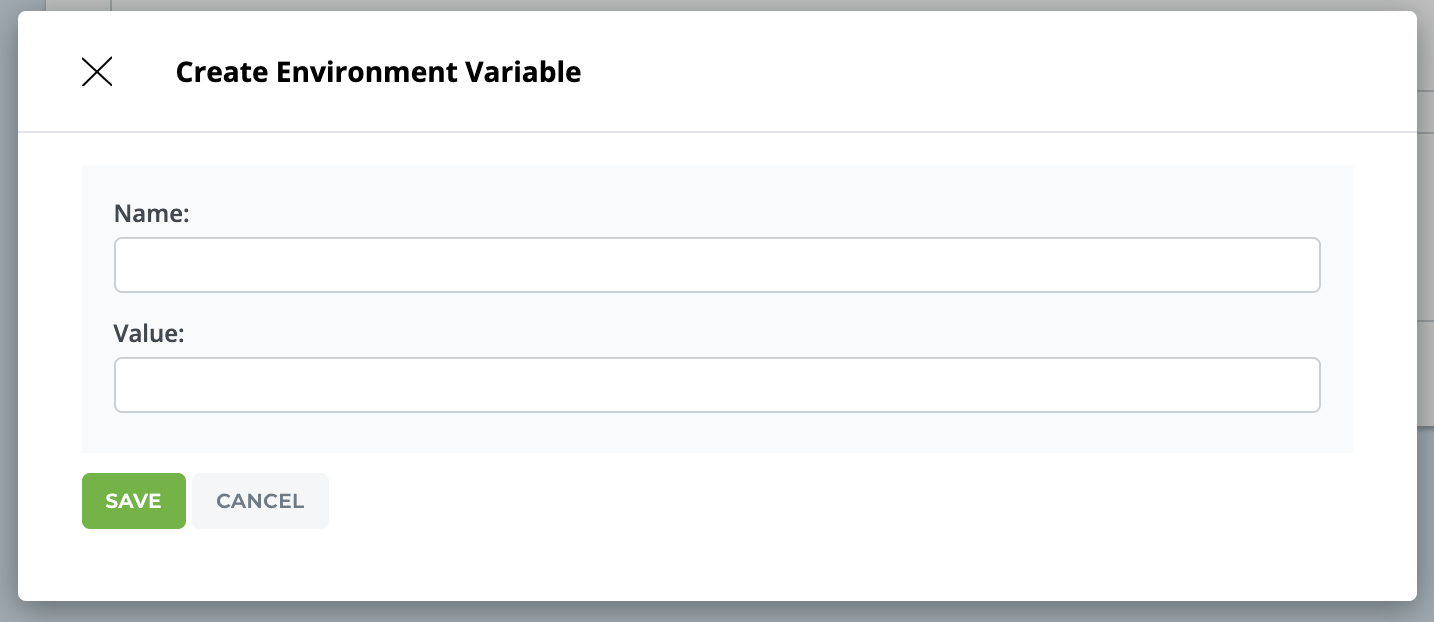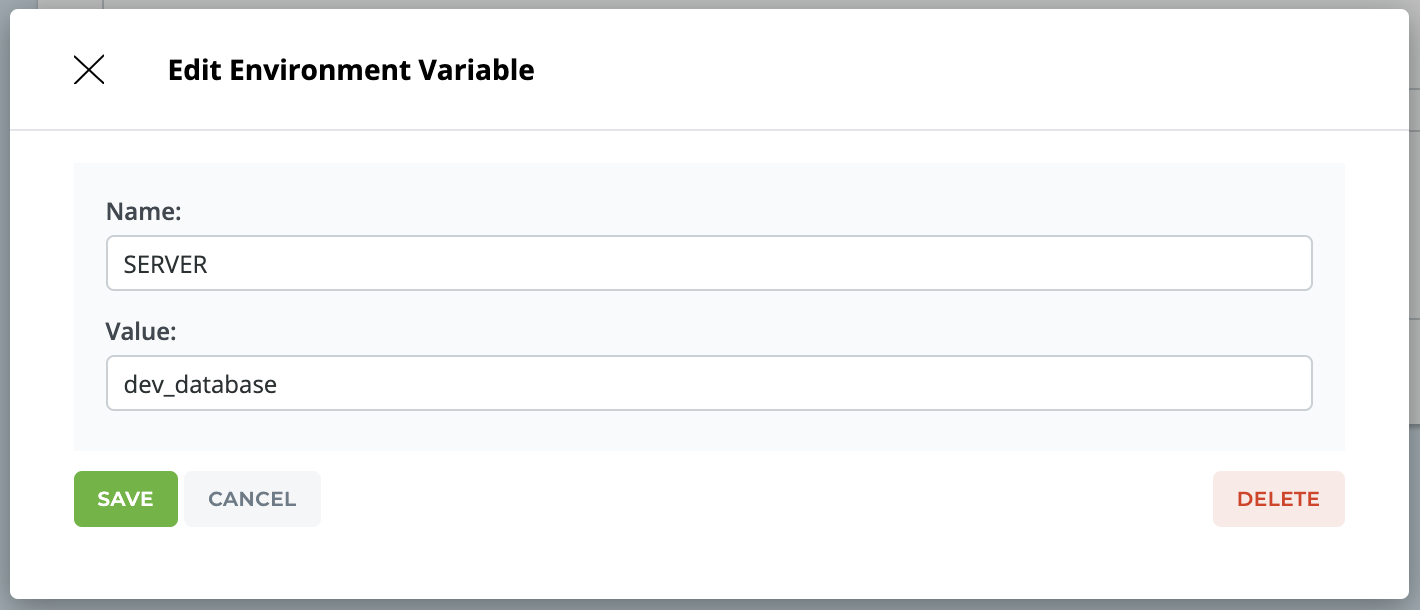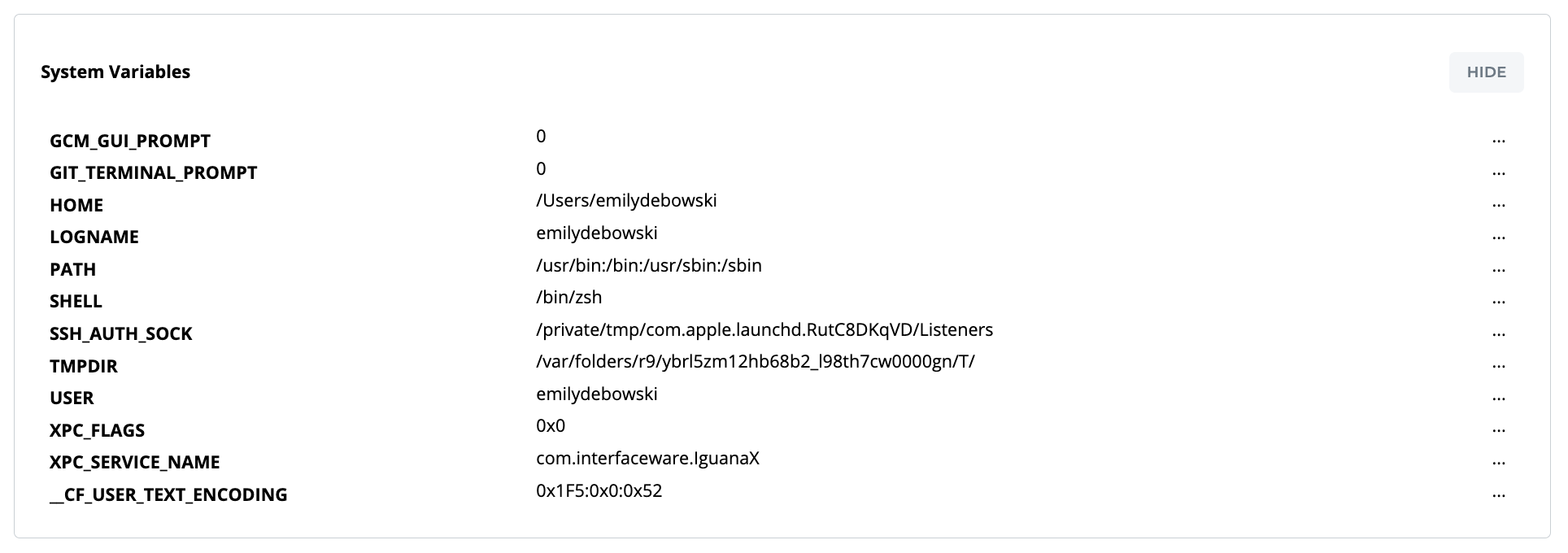Environment
The Settings Environment page is used to manage your instance environment variables.
Environmental variables make it possible to use variables within your interfaces to differentiate between development, staging and production environments.
For instance, if you configured an environmental variable like SERVER. This could point to a test database in your development servers and a production database in production.

-
Local Variables are local to the Iguana Instance. Users can create local environment variables to store non-sensitive information such as endpoints for specific systems, or paths to local configuration files.
Note: It is not recommended to store sensitive information or “secrets” such as user credentials or API keys using environmental variables. If necessary, these can be stored within custom fields in the config.json file using the “password” field type. See our configuration management or custom fields pages for more information.
-
To create a new local variable:
Simply input the Name and Value and click Save

-
To modify or delete an existing local variable
Click the ellipsis, or double-click on the existing local variable

-
Systems Variables are built into Iguana. These cannot be changed and are hidden.
Click Show to see all details

To access environmental variables in your scripts you would either use:
-
In Lua:
os.getenv("SERVER")or -
In a custom field:
${SERVER}
One can also change environmental variables that external command line tools might use. Keep in mind that the environmental variable changes only occur with the context of the IguanaX server instance - not the entire operating system.
Iguana stores all custom environment variables in the instance directory in IguanaEnv.txt.